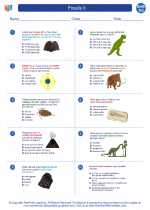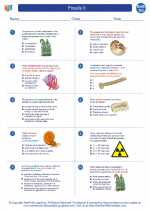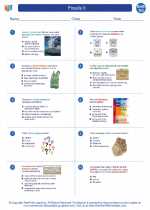What are Microorganisms?
Microorganisms are microscopic living organisms that are found everywhere on Earth. They can be found in soil, water, air, and inside other living organisms. Despite their small size, microorganisms are incredibly diverse and can be classified into several groups, including bacteria, viruses, fungi, and protozoa.
Types of Microorganisms
Bacteria: Single-celled organisms that can be found in a wide range of environments. Some bacteria are beneficial and play roles in processes such as nutrient cycling, while others can cause diseases in plants, animals, and humans.
Viruses: Non-living particles that require a host cell to replicate. They can infect all types of life forms, including animals, plants, and even other microorganisms. Viruses are responsible for a variety of diseases, including the common cold, flu, and COVID-19.
Fungi: Eukaryotic organisms that can be unicellular or multicellular. They are important decomposers in ecosystems and can also cause diseases in plants and animals. Some fungi are used in food production, such as yeast in bread making and fermentation processes for brewing.
Protozoa: Single-celled eukaryotic organisms that are found in various aquatic and terrestrial environments. Some protozoa are parasitic and can cause diseases like malaria and sleeping sickness.
Roles of Microorganisms
Microorganisms play crucial roles in various ecological processes, including nutrient cycling, decomposition, and symbiotic relationships with other organisms. They are also used in various industrial processes, such as food production, bioremediation, and the production of antibiotics and other pharmaceuticals.
Impact on Human Life
Microorganisms have both positive and negative impacts on human life. Beneficial microorganisms are used in food production, medicine, and biotechnology, while harmful microorganisms can cause diseases and spoil food. Understanding and managing microorganisms is essential for maintaining human health and the health of ecosystems.
Studying Microorganisms
To study microorganisms, scientists use various techniques such as microscopy, culturing, and molecular biology methods. Understanding the diversity and functions of microorganisms is essential for fields such as microbiology, ecology, and biotechnology.



